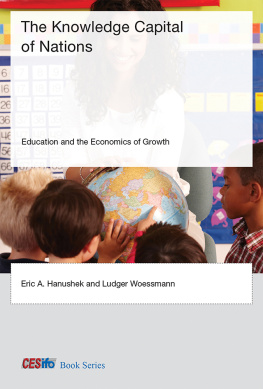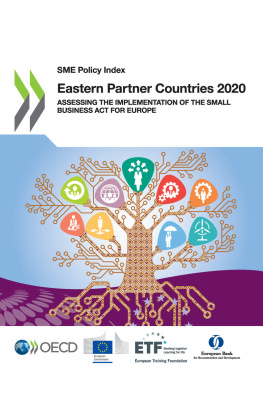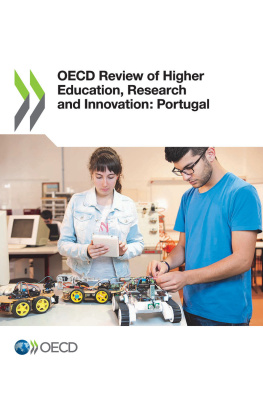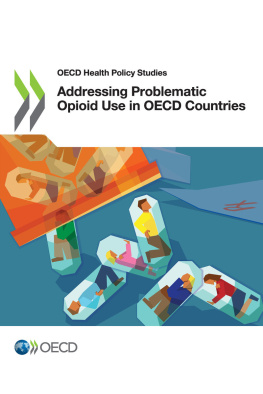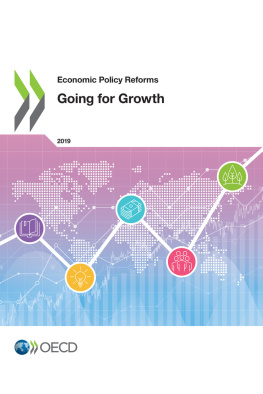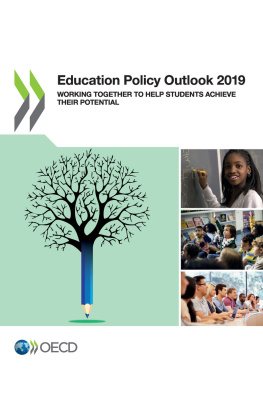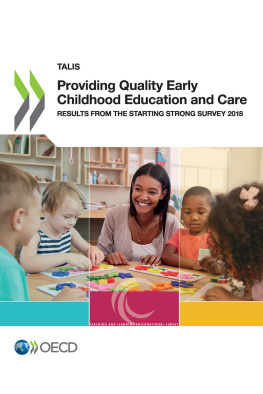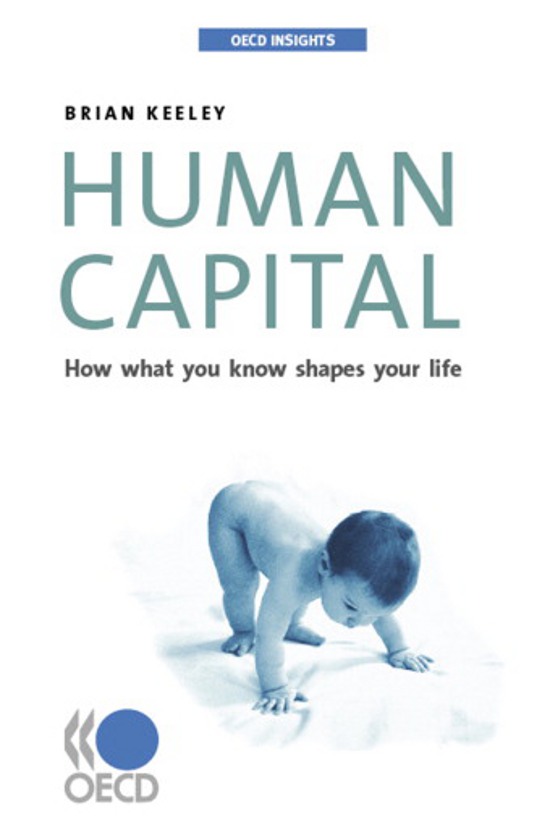Foreword
Economic success crucially relies on human capital the knowledge, skills, competencies and attributes that allow people to contribute to their personal and social well-being, as well as that of their countries.
Education is the key factor in forming human capital. People with better education tend to enjoy higher incomes a benefit that is also reflected in improved economic growth. But the impact of human capital goes beyond economics. Raising human capital raises health levels, community involvement and employment prospects. Indeed, as globalisation increases the need for technological skills and adaptation, the importance of human capital will only grow in the years to come.
Sadly, too many people today are not being given the opportunity to fully develop their abilities. Even in developed countries, as many as one-fifth of young people fail to finish secondary school, which severely limits their subsequent employment prospects. Such failure is frequently concentrated in particular communities, leading to their marginalisation from the economic and social mainstream.
Given its significance for economic and social development, human capital has long been a priority subject for the OECD, which is heavily involved in education; working to develop understandings of how teaching and learning can be improved in the classroom and helping education systems in member countries to learn from each others successes and failures. Best known, perhaps, is the OECDs PISA programme, which measures the competencies of 15year-old students in more than 40 countries around the world. But the OECD also deals with issues such as schooling for tomorrow, childcare, education, lifelong learning and higher education.
The OECD is also looking at health issues, trying to understand how this sector performs and how it can deliver the best service to our societies.
The OECDs research and findings often feature in newspapers, television reports and other media. But for some time we have felt that we should deliver our analysis and research to a wider audience. That is why we created this new series of books: OECD Insights.
Our aim is to generate an informed debate on some of the key issues that affect our societies and economies today. All too often, such debate generates more heat than light. For a truly meaningful dialogue, we need to go beyond exchanging opinions no matter how fiercely they are held and look at the facts and figures. With a long record of research and analysis, we feel that few bodies are better placed than the OECD to report on these realities.
We hope that this new series of books will provide readers with the information and insights they need to understand the changes and challenges that will shape our economies, our societies, and ultimately, our lives, in the future.
Angel Gurra
Secretary-General of the OECD
Acknowledgements
The author gratefully acknowledges the advice and assistance of the following:
Willem Adema, Andrea Bassanini, Gary S. Becker, John Bennett, Annabel Boissonnade, Nick Bray, Tracey Burns, Alejandro Camacho, Rory Clarke, Margot Cohen, Martine Durand, Juliet Evans, Vincent Gallart, Tom Healy, Herwig Immervoll, Sue Kendall-Bilicki, Kaisu Krkkinen, Mosahid Khan, Vladimir Lopez-Bassols, Kate Lancaster, Janet Looney, Angus Maddison, John Martin, Marco Mira d'Ercole, George Papadopolous, Vikrant Roberts, Jean-Jacques Salomon, Tom Schuller, Raymond Torres, Spencer Wilson, Gregory Wurzburg.
Currency Note
Currency references are in US dollars unless otherwise indicated.
1. Introduction: Investing for Change
Todays children are growing up in a changing world. Globalisation isopening up economies and creating opportunities. Economicfoundations have shifted, too, with the rise of the knowledge economy.Coupled with major social change, such as the ageing of populations,societies must fi nd solutions to new challenges. |
By way of introduction...
The Paris suburb of Villiers-le-Bel is an uninspiring place on a cold, winter afternoon. Blocks of look-alike apartments line up in long rows. A discount store stands deserted on a street corner. Groups of young men hang around the community centre.
Just a few months earlier, youths like these had taken to the streets of Pariss suburbs. Thousands of cars were burned in night after night of rioting that featured on the front pages of newspapers around the world. Some in France dismissed it as nothing more than mindless violence. Others saw it as a cry of anger from immigrant communities who believe they have suffered decades of social exclusion and economic marginalisation.
The riots are just a memory on this dreary afternoon at the community centre as the men sit about in thick padded jackets listening to rap music on a stereo. Upstairs, four local unemployed women are meeting with an employment advisor. Some of the women were born in France; others are immigrants; all come from different ethnic backgrounds. They talk about what they need to put in their rsums and how to approach employers, and then discuss sometimes heatedly the problems they face in finding jobs.
Some of the women argue that because their area relies on just one railway line, employers are reluctant to hire them for fear that transport delays and strikes will keep them from getting to work. Others believe the barriers are more insidious, a reflection of prejudice and discrimination. All agree that lack of education can be a major obstacle to finding a job.
Linda, who grew up in France in a traditionally minded North African family, regrets that her education was cut short. I was a model student at school, she explains, but she was pulled out before she could finish her schooling. My father believed that women shouldnt work and that they should stay at home until they got married. In our education, our culture, our religion, a woman just has to accept things as they are.
Linda was married in her late teens, but her marriage didnt last, leaving her to bring up her children on her own. Thats forced her family to reconsider its beliefs. My father finally accepted my divorce. Now he understands my situation, he has changed his approach. Now he pushes me to find work. But for Linda, thats not easy: No CV, no professional experience, never a trainee. She has turned to Frances employment services for help with training and is hopeful that they can help her, but she knows it wont be easy. There are no guarantees, she says.
To get on, to get a better job and to improve their incomes, the women know they need to have an education. Thats hardly a revolutionary idea. Parents the world over and in all social classes nag their children to study hard and get good grades in the hope that some day theyll reap the rewards of all that work.
Behind that advice lies an interesting concept; namely, that the years we spend in education generate a form of capital that has the potential to produce a long-term return, just like forms of capital that we may be more familiar with, such as money in a bank or a piece of land. This idea has become highly influential among policy makers, and it has spread beyond just education. Good health, too, can be regarded as a form of capital that has the potential to pay returns to individuals in the form of increased lifetime earnings.
Indeed, even the relationships and shared values in societies can be seen as a form of capital that make it easier for people to work together and achieve economic success. Arguably, the absence of such capital explains some of the problems that affect places like Villiers-le-Bel.


